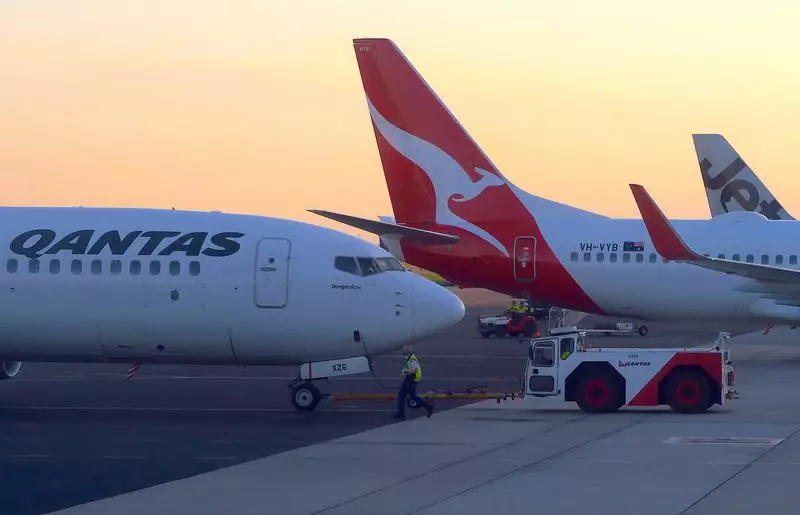The recent ruling by the Federal Court of Australia has sent shockwaves through Qantas Airways as it grapples with the ramifications of its decision to unlawfully terminate the employment of three baggage handlers in 2020. Judge Michael Lee’s determination to award the workers A$170,000 sheds light on the airline’s controversial practices during a tumultuous period marked by the COVID-19 pandemic. This legal battle is not just a win for the affected employees; it signifies a potential turning point for approximately 1,700 other former staff members whose jobs were similarly outsourced.
In his ruling, Judge Lee illustrated that the dismissals were fundamentally wrongful, describing the airline’s justification of cost-cutting during an unprecedented global crisis as inadequate. The awarded damages, differentiated between the three workers at A$30,000, A$40,000, and A$100,000 for non-economic losses, highlight the court’s acknowledgment of the emotional and psychological impact of the layoffs. The judge’s assertion that Qantas would have potentially outsourced work lawfully if not for the improper handling of the situation adds a layer of scrutiny to the airline’s operational decisions at that time. This legal precedent might not only bolster the claims of the other ex-employees but also hold Qantas accountable for its approach to labor relations moving forward.
Qantas is already under significant scrutiny for its operational decisions during and after the pandemic. The airline’s ongoing legal challenges underscore a broader narrative of mismanagement that includes accusations of misleading customers by selling tickets for flights that were subsequently canceled. Coupled with recent pressures to block competition, such as lobbying against Qatar Airways, Qantas faces a precarious path to restore its public image. CEO Vanessa Hudson’s apology marks a shift; however, the onus remains on the airline to translate words into meaningful structural reforms.
The Transport Workers Union (TWU), spearheading this case, has vocalized the need for Qantas to not only comply with the court’s order but also to establish a more equitable and just workplace moving forward. Michael Kaine, the national secretary of the TWU, has stated emphatically that sincerity must drive Qantas’s efforts to right the wrongs experienced by former workers. The expectation is set: as negotiations for total compensation for all affected ground staff move forward, Qantas must demonstrate commitment through tangible support and respect for its workforce.
As Qantas prepares to return to court in mid-November, it stands at a crossroads. The ruling serves as both a wake-up call and a chance for reformation. By engaging meaningfully with the TWU and the former employees, Qantas could begin to pave a path to redemption. However, if the airline approaches this challenge merely as a legal obligation rather than an opportunity for cultural transformation, it risks repeating past mistakes and further tarnishing its reputation. The next few months will be crucial in determining whether Qantas can emerge from this turbulent period as a more responsible and reliable airline.

